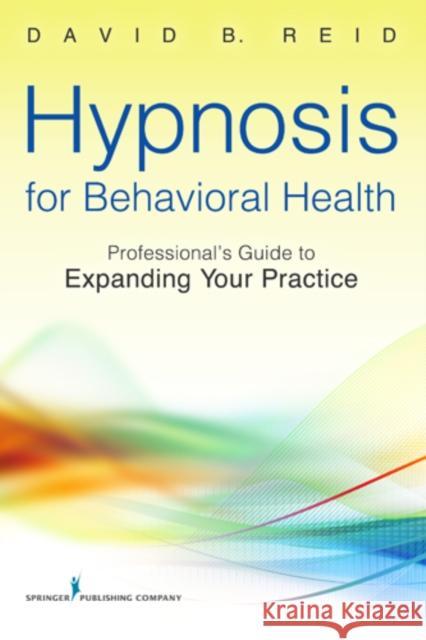Hypnosis for Behavioral Health: A Guide to Expanding Your Professional Practice » książka
topmenu
Hypnosis for Behavioral Health: A Guide to Expanding Your Professional Practice
ISBN-13: 9780826109040 / Angielski / Miękka / 2012 / 262 str.
Winner of the Arthur Shapiro Award for the 2013 Best Book on Hypnosis
The charm and value of Reid's book is that it is very personal... Reid's persona emerges as a warm, generous, and enthusiastic colleague, who is eager to share how he figured this clinical hypnosis stuff out and integrated it into his practice... The book] serves quite well to introduce the uninitiated, and those who wish to guide them, about using the power of trance and therapeutic communication in practical ways to become more effective in helping those for whom we care. I wish I had read it in medical school." -- Laurence I. Sugarman, M.D., F.A.A.P., A.B.M.H., Annals of Behavioral Sciences and Medical Education This is an excellent introductory book for any professional who deals with behavioral health issues and would like to add hypnosis to her arsenal of clinical tools."--American Journal of Clinical Hypnosis Clinical hypnosis has been proven through decades of rigorous research and practice to be an effective intervention in a wide range of mental, behavioral, and physical health issues. This highly practical text demystifies clinical hypnosis by providing step-by-step guidance for using its techniques to enhance the repertoire of practitioners in other psychotherapeutic modalities. It offers mental health providers with no formal training in hypnosis the requisite guidance and information they need to learn and confidently apply strategies to help their clients initiate constructive, health-oriented change in their lives. Chapters progress from initial assessment through the development of treatment plans and actual hypnotic techniques with clients. The author shows how to apply hypnosis to such clinical issues as anxiety, stress, somatic disorders, pain, and unwanted habits. In addition, the author shows clinicians how they can broaden their practice beyond mental or physical health parameters of treatment by applying hypnosis in areas of personal growth and wellness (motivation, athletic performance, conflict resolution). The text also covers ethical and professional issues related to clinical hypnosis, which does not require special licensure when it is integrated into a psychotherapeutic practice. Key Features:- Offers clinicians who have no or little background in clinical hypnosis clear, accessible information on how to safely and effectively use basic techniques with clients
- Helps psychotherapists expand their practice by providing effective interventions with behavioral health issues that are also eligible for insurance reimbursement
- Includes sample guided scripts for specific problems as well as experiential exercises and treatment plans
- Provides case histories drawn from the author's clinical work and those of the "father" of clinical hypnosis, Milton Erickson
- Instructs therapists on the use of hypnosis for clinical and personal growth and wellness issues











